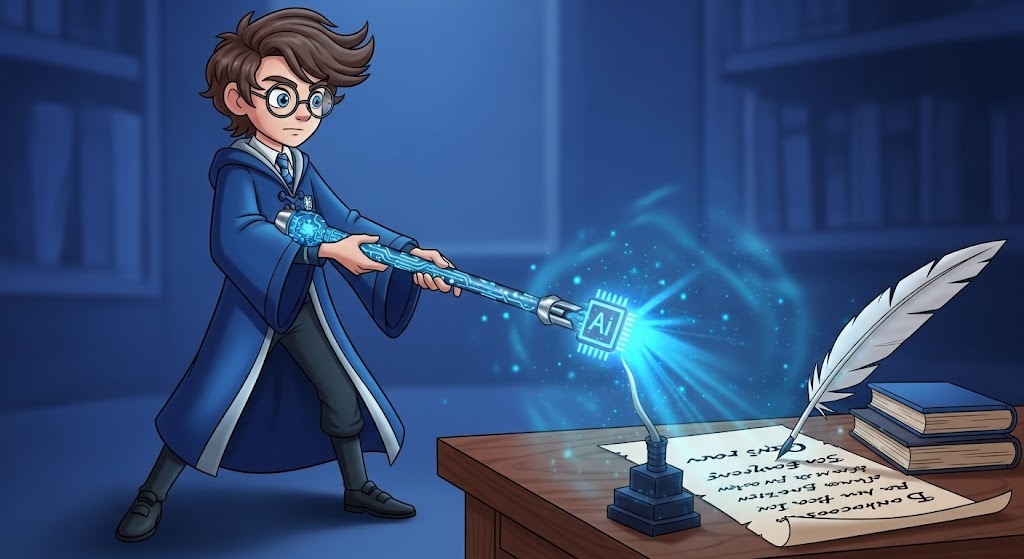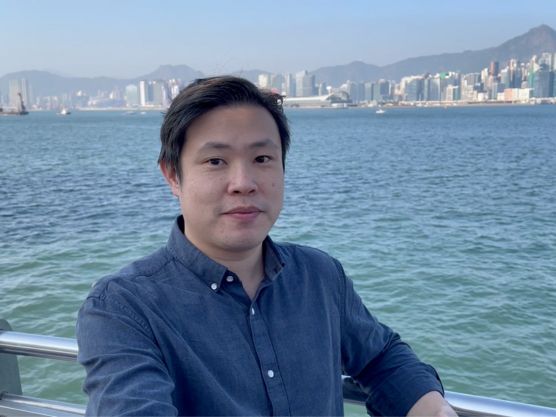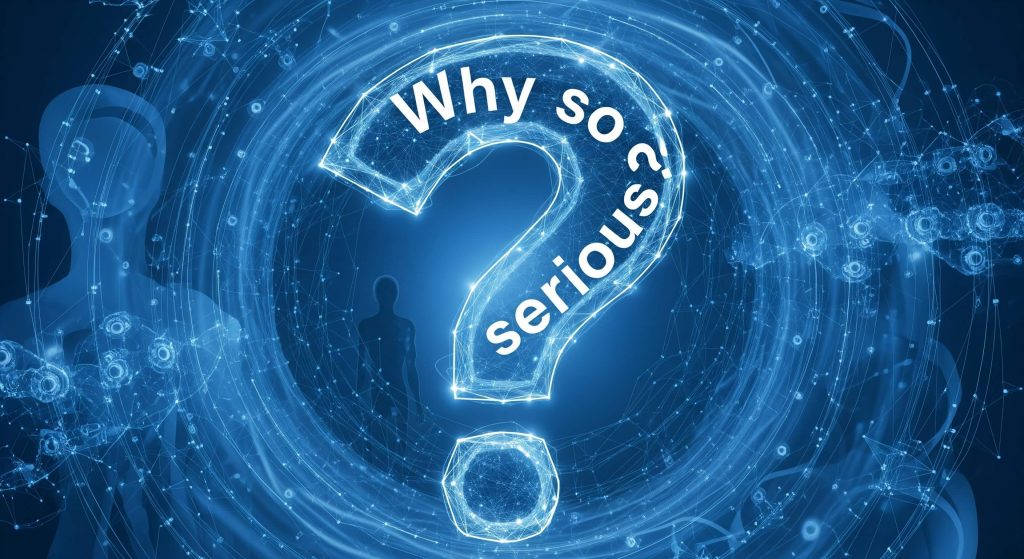How Generative AI is Creating AI Wizards and HI Muggles in Our World

If you’re a millennial, chances are you’re a Harry Potter fan. Have you ever daydreamed about living in J.K. Rowling’s wizarding world? It would be enchanting. With a flick of your wand and a chant of “Wingardium Leviosa,” objects could float effortlessly, letting you grab the TV remote without leaving your cozy couch.
But hold on, I’m not talking about imagining yourself as a wizard or witch. Picture living in that world as a muggle. (In case you haven’t heard of this word, muggles are ordinary, non-magical folks.) You’d be a nobody in this enchanted realm, unable to perform spells, overlooked in the grand narrative, and powerless amid the wonders. Wizards soar on broomsticks while you squeeze in a subway train; they conjure feasts while you cook by hand (or by microwave, “ding”). It’s a stark divide, where magic elevates some and sidelines others.
This isn’t just fantasy. It’s a metaphor for our real world with generative AI (Gen AI). Before tools like ChatGPT exploded in 2022, we were all muggles, relying on our wits and manual effort for tasks. But now, those who’ve adopted GenAI are gaining what feel like magical superpowers, transforming how they work, create, and learn.
For instance, a writer can summon polished articles from a simple prompt, generating ideas faster than brainstorming alone. Artists use tools like DALL-E to conjure stunning visuals from text descriptions, bypassing years of training. Coders leverage AI to debug complex programs or even write entire apps, accelerating innovation. In business, analysts prompt AI to sift through massive datasets and uncover insights that would take humans days, such as predicting market trends or personalizing customer experiences. These aren’t cheats; they’re augmentations, like having an infinite library and a genius tutor in your pocket.
AI Wizards vs. HI Muggles
Yet, this magic is creating a divide reminiscent of wizards and muggles. AI adopters, let’s call them the “AI wizards,” command productivity with prompts, automating tedious tasks and focusing on high-level dreaming. Meanwhile, the “HI muggles” (Human Intelligence muggles), those without access, skills, or awareness of AI, still toil manually, from drafting reports by hand to researching using human brain without smart assistance. In Harry Potter, many wizards disdain muggles, viewing them as inferior and oblivious to magic’s possibilities. Muggles can’t even fathom spells, let alone wield them. Similarly, in our world, non-AI users might not realize the “magic” happening around them, leading to a two-class society: the empowered elite and the left-behind.
This AI divide isn’t harmless fiction; it’s a catalyst for real-world discrimination and inequality. Gen AI boosts productivity dramatically. In fact, a 2023 report from McKinsey shows generative AI could add the equivalent of $2.6 trillion to $4.4 trillion annually to the global economy by enhancing productivity in sectors like healthcare, finance, and creative industries.
In a capitalistic society, higher productivity translates to wealth. When AI wizards earn more, innovate faster, they can access better resources, like more advanced AI tools or more computing power. This creates a feedback loop where more wealth buys better tech, which in turn amplifies capabilities and widens the gap. On the flip side, HI muggles get stuck. Workers in manual jobs face obsolescence, students without AI literacy fall behind in skills, and entire communities, especially in developing regions, miss out, exacerbating global inequalities. We’ve seen echoes of this in the digital divide of the internet era, where lack of access deepened poverty and limited opportunities. Without intervention, the AI divide could fuel social unrest, job displacement, and even ethical issues like biased algorithms that favour the privileged.
Bridge the AI Gap before It’s Too Late
But here’s the hopeful twist. I believe we can bridge this chasm and make AI’s magic inclusive. To do this, we should ensure fair and equitable AI access starts early. Governments and organizations must invest in universal AI education, from school curricula that teach ethical use of generative AI to free online platforms that feature open-source models from places like Hugging Face. Companies can offer affordable tools and free training to democratize access and help turn HI muggles into AI wizards (OpenAI Academy is one example). Policies could mandate AI literacy in workplaces, provide subsidies for underserved areas, and establish ethical guidelines to prevent discrimination. By prioritizing inclusion, we can advance human civilization together.
What side of the AI divide are you on? Have you felt like a HI muggle in this Gen AI world, or have you discovered your own “AI magic wand”? Share your thoughts in the comments. Let’s discuss how we can make this magic accessible to all.

About the author
Antony Wong, a tech enthusiast who has a lot to say, but also being an introvert at the same time.

